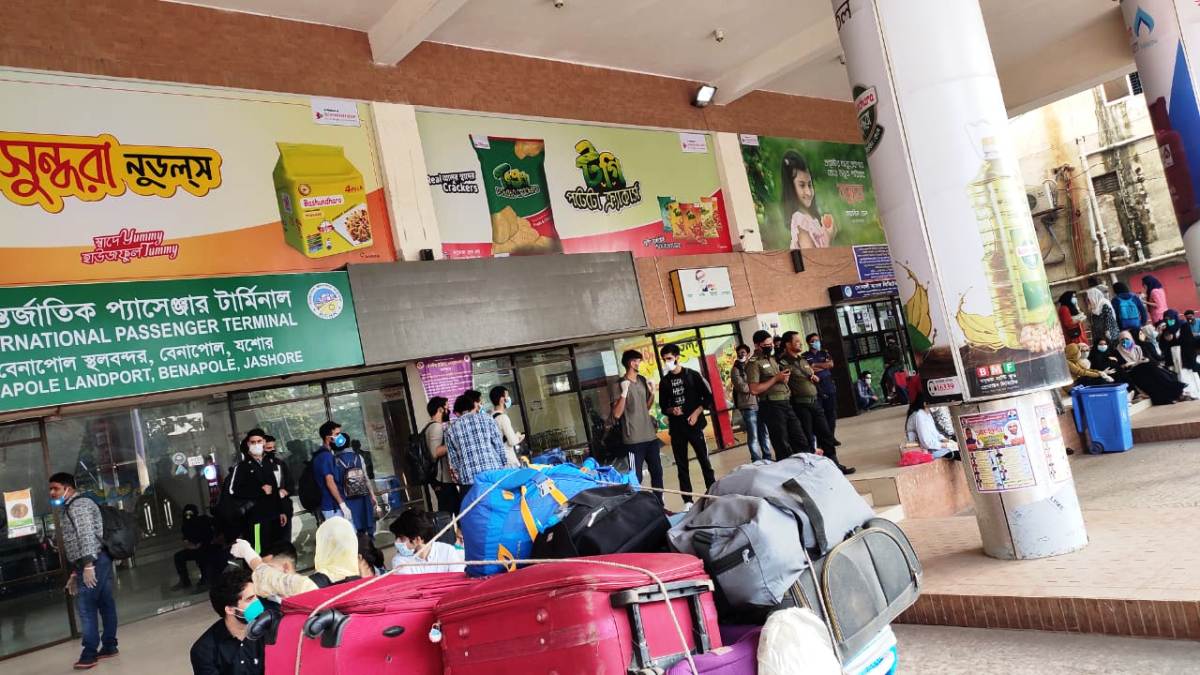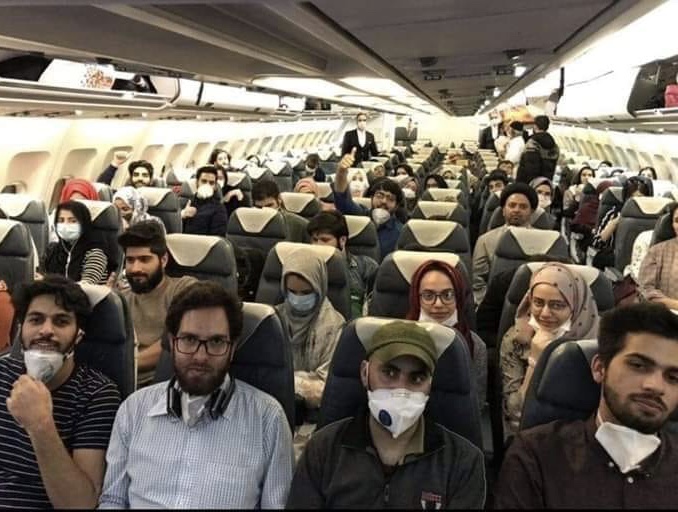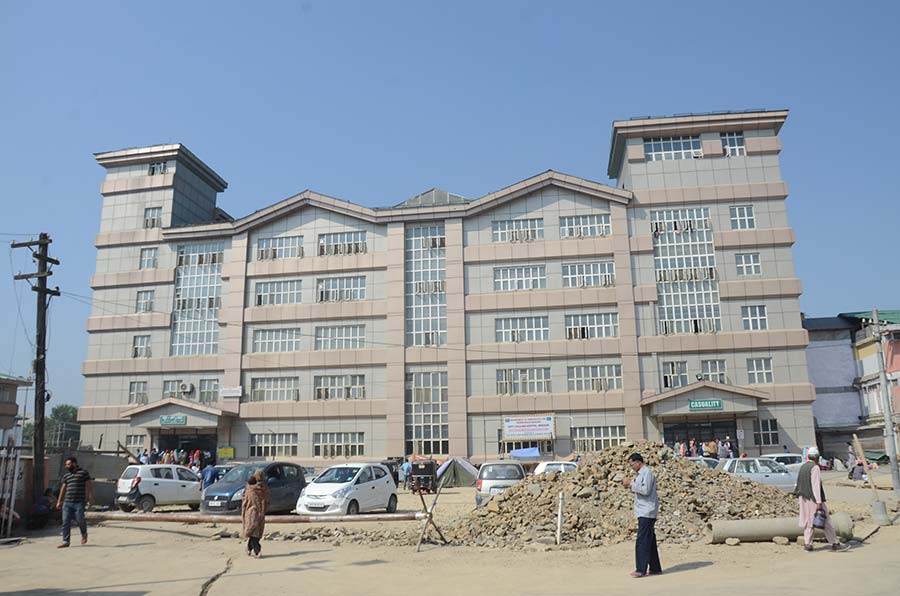The pandemic has forced the students enrolled with offshore medical schools to study virtually from home. This is putting a question mark over their competence as future doctors, reports Farzana Nisar

It is 6 am and red-headed Sheezan Sabzar, a 22-year-old MBBS student of International School of Medicine, Bishkek, Kyrgyzstan, is attending his second online class of the day from the comforts of his bed in Kulgam’s Pahloo. Since early 2020, when students pursuing education in different parts of the world were sent back home, amid the surging cases of Covid19, Sheezan hasn’t been to his college.
“I have been appearing in online examinations for the last two semesters but there is a huge difference between learning physically at a medical school and virtually at home,” Sheezan, a sixth-semester student, said.
His college is putting online presentations and demonstrations via charts in separate classes but, Sheezan said, the absence of practical training and interaction in a professional course like his is a huge loss.
Despite spending a huge amount of money on pursuing medicine overseas, the pandemic has now forced these students to turn to online resources, other than the classes held by their colleges. “Medicine in itself is a difficult subject to study and a 1-hour online class isn’t enough to clear all our doubts and confusions,” Sheezan said. “Besides, we didn’t take all the books along when we left for home. We thought that the pandemic would wind down soon. Also, the airlines only allow you to carry limited luggage.”
Funny Classes
Another student of a central Asian college, Mohammad Faizan who pursues MBBS at Asthana Medical University, Kazakhstan prefers to skip most of his online classes. He is of the firm belief that “MBBS is not a course to be done online.” A student of the second year, Faizan was only able to study the first semester on the campus. “We had hardly attended any classes of the next semester and the pandemic happened. After the quick transition of the entire curriculum to an online format, no clinical skill session has been conducted by our school,” Faizan said.

Expressing his dissatisfaction with the existing virtual system of learning, Faizan said: “We were once told by our professor to give an injection to someone and later send its video. This is terrible.” He further opined that missing out on practical studies would have a far-reaching impact on how good doctors they become.
“At the end of the day, we have to treat patients in the hospitals and not on video conferences. We can’t make excuses that we missed the anatomy or physiology practical due to the pandemic,” he laughed.
Faizan believes that the medical schools have no plans to cope up with the loss. “They haven’t communicated any such thing to us as of now.”
Dhaka Colleges
In 2019, when Shaista Jan, a resident of Harnag Anantnag, secured admission to a top medical college of Bangladesh, little did she anticipate the strenuous process of earning her degree from home. Enrolled at Ad-din Women’s Medical College, Dhaka, Shaista’s online classes start around 7 am and continue till 3 pm, with a short break for lunch, every day.
“I don’t feel like I am learning anything with these classes. It is just a means to pass examinations and meet the assignment deadlines,” Shaista, who is currently in her third year, said. “The prolonged screen time not only depletes my energy, I don’t even get time to study on my own. I feel lost and demotivated.”
Unable to interact with patients, visit OT’s and observe senior doctors, Shaista said that digital learning has killed her purpose of studying medicine at a foreign college and paying such a hefty fee.

While the concern of most of these home-stuck students is the lack of clinical exposure, Shaista also fears that it would be difficult for them to qualify for the Foreign Medical Graduates Examination (FMGC), also known as the Medical Council of India (MCI) examination – a test compulsory for those Indian students who have pursued MBBS from abroad.
“A good number of clinical questions are set in the MCI examination. It is a challenging examination and needs a lot of practice and without the required practical guidance and training I don’t know what will we do? This will also impact our work during the internship.”
Shaista feels that there is bias and prejudice against foreign-trained doctors in Kashmir, which is likely to increase due to the virtual learning scenario created by the pandemic.
“We are often treated differently not only by this society but also our own medical fraternity. They call us Bangladeshi doctors and perhaps we will now be called online doctors,” she said, in a sombre tone.
Travel Suspended
As travel remains suspended between Bangladesh and India owing to the second wave of Covid, hundreds of Kashmiri students enrolled in different Bangladeshi medical colleges are stuck at home. The Jammu and Kashmir Students Association (JKSA) earlier this month had written to the external ministry to facilitate the travel of MBBS students for attending their exams.
Unlike Shaista, who studied in the traditional classroom set-up at her medical school for about a year, Sana (name changed), a BSc radiology student, visited her college in Chandigarh only for a week. “I got my admission finalized this year and attended the first few classes in March and then after corona cases surged our college was closed and all the students returned home,” Sana said.

As medical radiography and imaging technology involves methods and processes used to take pictures of the human body organs for clinical purposes, there are a lot of laboratory subjects in Sana’s curriculum. “Practical and laboratory experiments are essential for learning the basic concepts and I didn’t even get a chance to have a look at the radiology equipment,” she said. “Learning first-aid and asepsis online is no possible.”
Students pursuing medicine in different medical colleges of Jammu and Kashmir have a similar tale to share. The complete clampdown post abrogation of Article 370 followed by two back to back pandemic necessitated lockdowns has disrupted the learning of future doctors of Kashmir.
Homegrown Medicos
Sitting on the lawn of his home at Chrar-i-Sharief area of Budgam, Mohmmad Azim, a pre-final student of MBBS at Sher-i-Kashmir Institute of Medical Sciences (SKIMS), Srinagar, is marking important points in his textbook with the help of a highlighter pen. As Kashmir witnessed a rise in Covid19 cases in April 2021, authorities once again converted SKIMS into an exclusive Covid19 sanatorium. The students residing at hostels were asked to vacate and the rooms were provided to Covid19 staff. The medical school then shifted to virtual learning. However, Azim believes that the professional identity of a doctor relies on practical knowledge and laboratory learning along with real familiarity with authentic patient care environments.
“Subjects like surgery require clinical posting in hospital wards but that is not possible due to the pandemic,” Azim said. “Also, out of the three theoretical papers online class for only one subject is taken, because somewhere the teachers also know that it is difficult to make students understand the concepts in an online set-up.”
Azim too is worried about his performance after completion of his degree. “Nobody is to be blamed for the situation, but I don’t want to be a hypothetical doctor.”
Teachers Dilemma
Some professors of medicine also opine that online theoretical classes do not suffice the learning requirements of students pursuing medical courses. Dr Sheikh Zahoor Ahmad, Associate Professor at the department of surgical oncology, SKIMS said that the online platforms provide a valuable alternative to physical classes but for students of professional courses like MBBS, these methods are grossly inadequate as they lack the human touch and real-life scenarios.
“This pandemic has emerged as a black swan, disrupting all spheres of human activity including education. Not only has medical training been affected at the graduate level but even postgraduate teaching has suffered, as all human resources have been channelled towards Covid care,” Dr Sheikh said adding that in these difficult times when the healthcare system is stretched to limits, strategies need to be devised to mitigate the negative effects Covid19 has had on the training of medical professionals.
Concurring with his thoughts, Dr Shah Naveed, Assistant Professor at the same department said: “In MBBS curriculum there are theory as well as bedside clinical classes. Online classes in no way can replace bedside clinical teaching.”
Working In Hospitals
For some young doctors-in-training, their degree will come at the cost of risking their lives. With long working hours, low pay and the fear of infecting their families, MBBS interns have been the frontline warriors against the virus. In order to bolster the stretched healthcare system, the Jammu and Kashmir administration at the directions of the central government called upon the health institutions to utilize the services of final year MBBS students and interns for teleconsultation and monitoring of mild COVID-19 case after due orientation and supervision of faculty.
Suhaeb Malik, an MBBS student at Government Medical College (GMC) Srinagar, is currently completing his mandatory course-related internship. In addition to the postings in multiple departments of GMC, he has to periodically work in the Covid ward as well, where his job is to test the patients, check their vitals and give them injections.
Suhaeb in return is paid a monthly stipend of Rs 12000 and no incentive for his Covid19 duty, which according to him is disproportionately low in comparison to other states and UTs. “It’s not a matter of wages only but recognition of work and excluding interns from incentive programme is discrediting their job,” he said.
Another area of concern for MBBS interns, not currently in hostels, is the unavailability of accommodation at the hospitals. “Interns who have not availed the hostel facilities need to go back home at the end of their duties. Many interns who were exposed to the virus had their families infected too.”
Resident Doctors at the GMC recently regretted that they were denied the accommodation, a key to stay away from their families. They said 120 of them were infected and some of them took the infection home.















